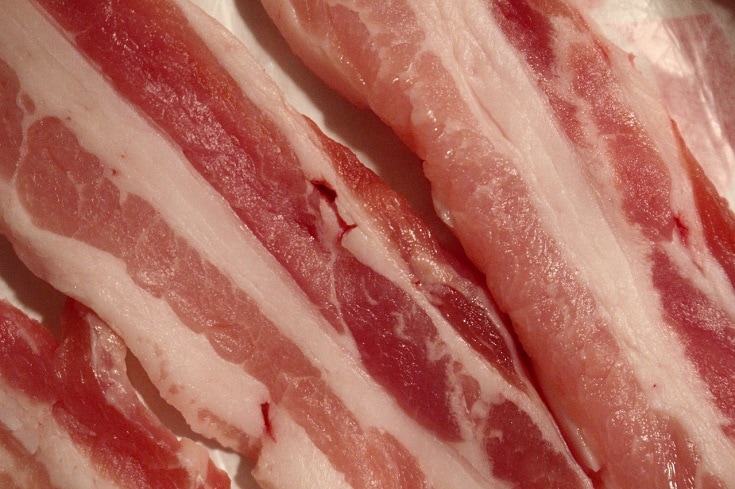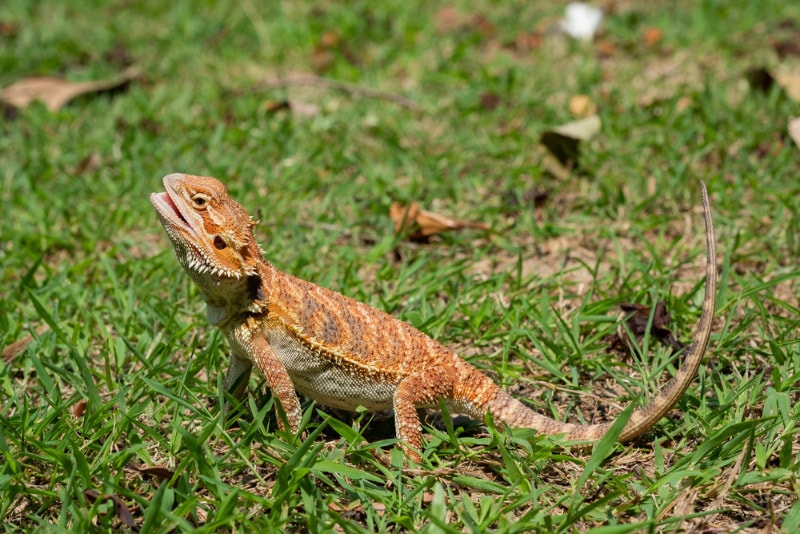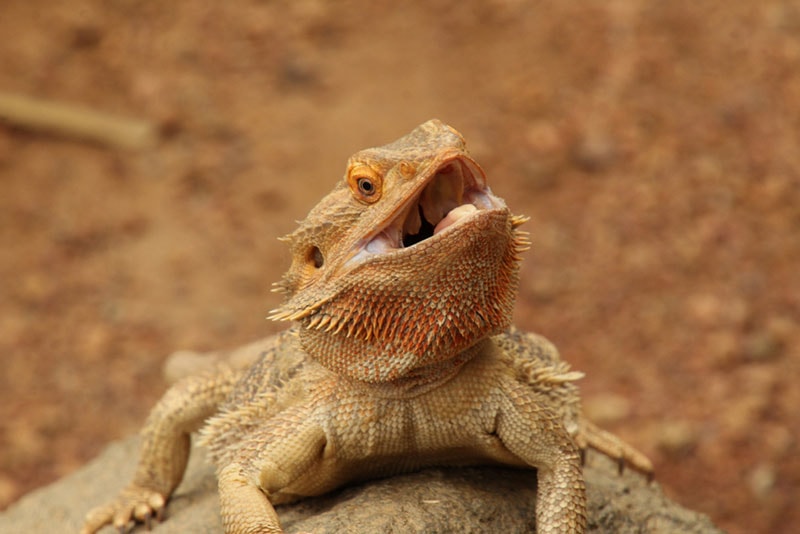Can Bearded Dragons Eat Bacon? Vet Approved Facts & FAQ
Updated on

Click to Skip Ahead
Bearded dragons are omnivorous reptiles, which means they eat plant- and animal-based foods. But that doesn’t mean they can have just any type of food. For example, bacon might be a delicious treat for humans, but it’s definitely not a healthy source of protein for your tiny dragon. In fact, most human foods are off-limits for these reptiles, as their diet should primarily consist of insects, veggies, and certain fruits.
Before introducing any non-traditional food to your pet’s diet (whether they have scales, hair, or feathers), you should understand the potential impact that it can have on their health.
What Is Bacon Made Of?
Bacon is a meat that is high in fat, calories, and salt. A serving of cooked pork bacon (about three slices of average style and cut) contains about 130 calories, 10 grams of fat, 9 grams of protein, and 410 grams of sodium. It also contains preservatives and additives to make it more palatable and last longer. While healthy humans can consume this delicacy every once in a while, it can be disastrous for your bearded dragon’s health.

What Is a Healthy Diet for Bearded Dragons?
Bearded dragons must consume a varied diet consisting of insects, veggies, and certain low-sugar fruits. According to PetMD, their ideal diet should consist of around 70% vegetables, 5% fruits, and 25% insects like crickets, mealworms, and Dubia roaches.
Bearded dragons also need vitamin and mineral supplements, such as calcium and vitamin D3, to prevent the development of certain health problems (such as metabolic bone disease). That said, it’s best to seek advice from your veterinarian before sprinkling powdered supplements on your reptile’s food, as their needs vary depending on their age and species.
What Are the Risks of Feeding Bacon to Your Bearded Dragon?
Although bacon does contain protein, your bearded dragon will not benefit from it! These reptiles get their animal protein needs met by consuming insects, ideally alive ones.
Bacon also contains saturated fat, which is not the same as the good monounsaturated fat found in juicy mealworms. That said, excessive consumption of fats, regardless of their origin, can lead to obesity and other health complications in these reptiles, so moderation is vital.
Another issue with feeding bacon—even tiny pieces—to bearded dragons is the salt content. These reptiles need a balanced water intake to maintain proper hydration levels, and excess salt can upset this balance.
Finally, the cooking process for bacon often involves frying or grilling, which brings additional concerns. Using oils or seasonings can be harmful to bearded dragons, as their digestive systems are sensitive and not equipped to handle such substances.

What Other Types of Animal-Based Proteins Can Bearded Dragon Eat?
The best animal protein sources suitable for bearded dragons include crickets, hornworms, phoenix worms, superworms, silkworms, mealworms, waxworms, butterworms, and grasshoppers. However, do not feed them waxworms and superworms too often because these are quite high in fat. Also, freeze-dried insects do not have enough nutrients and are not recommended by most veterinarians.
Final Thoughts
In short, if you want your bearded dragon to stay healthy for as long as possible, avoid sharing your delicious BLT sandwich with them. These animals are best served by respecting their natural dietary needs and avoiding foods that are not specifically made for them. Bacon is definitely not a treat that belongs on their plate.
Featured Image Credit: StockSnap, Pixabay










